WFP Partners With Silicon Valley Experts to Accelerate Innovations Aiming to #DisruptHunger Globally
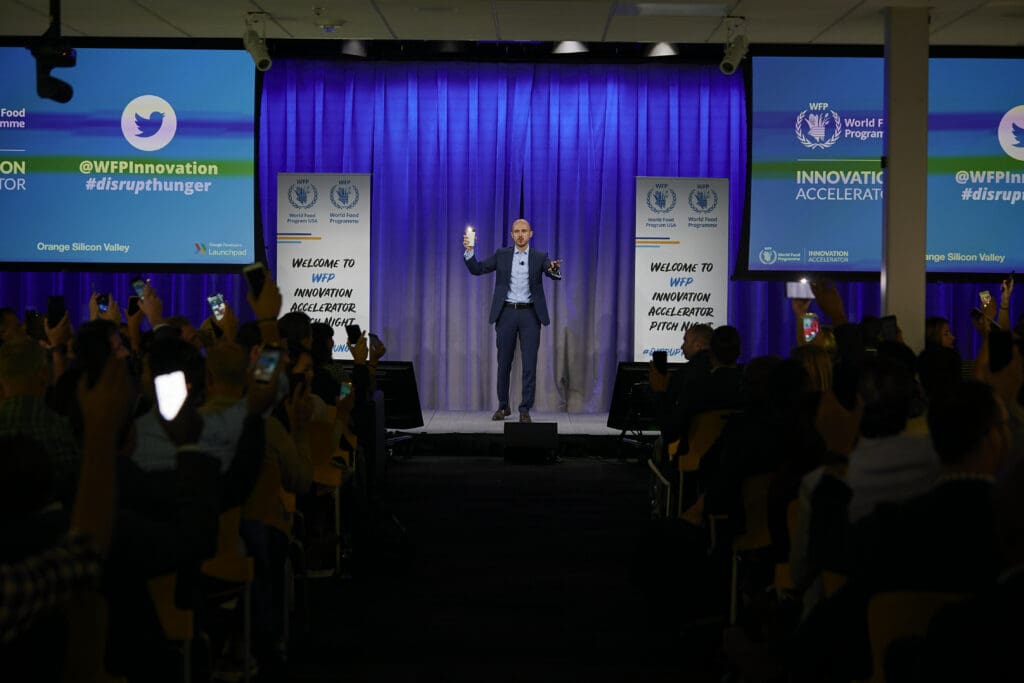
New ideas at the World Food Programme’s (WFP) Innovation Accelerator are only one ingredient in our secret sauce, with 22 bootcamps done in the last four years, and hundreds of innovative projects benefiting from this accelerated process. The world’s pressures on food supply is changing, and new approaches are needed to help humanitarian food aid and delivery keep pace. Innovation can come from all angles, whether it’s inside WFP from the people who work on food aid delivery every day, or from outside WFP from professionals who may research or develop new knowledge and tools to disrupt hunger. WFP’s annual Innovation Challenge invites proposals from all corners of the world, and the six best early stage start-ups and five advanced scale-up projects were invited to a WFP Innovation Bootcamp where they put their ideas to the test.
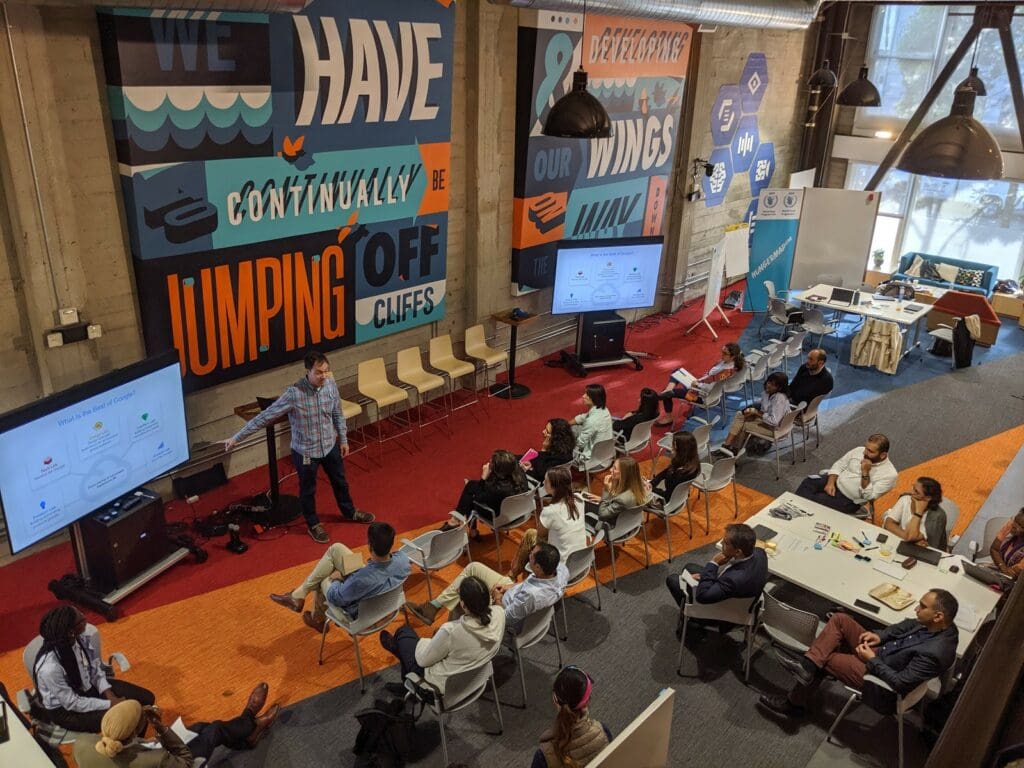
Jeremy Neuner, Head of Launchpad, takes the Early Stage Start-Up teams through some design thinking at the Google Developer’s Launchpad space.
The bootcamp for early stage start-up innovators was hosted at the inspiring Google Developer’s Launchpad space in central San Francisco. The bootcamp for advanced scale-up innovators was hosted by Orange Silicon Valley overlooking the San Francisco Oakland Bay Bridge. Each team met with specialized tech sector professionals, mentors, and other innovators, analyzed their ideas, injected lean-startup business processes, considered human-centered design. This process helped teams hone and focus their proposals towards a high energy Pitch Night in front of an audience of potential supporters and investors.
Watch the entire Pitch Night on WFP USA’s Facebook page.
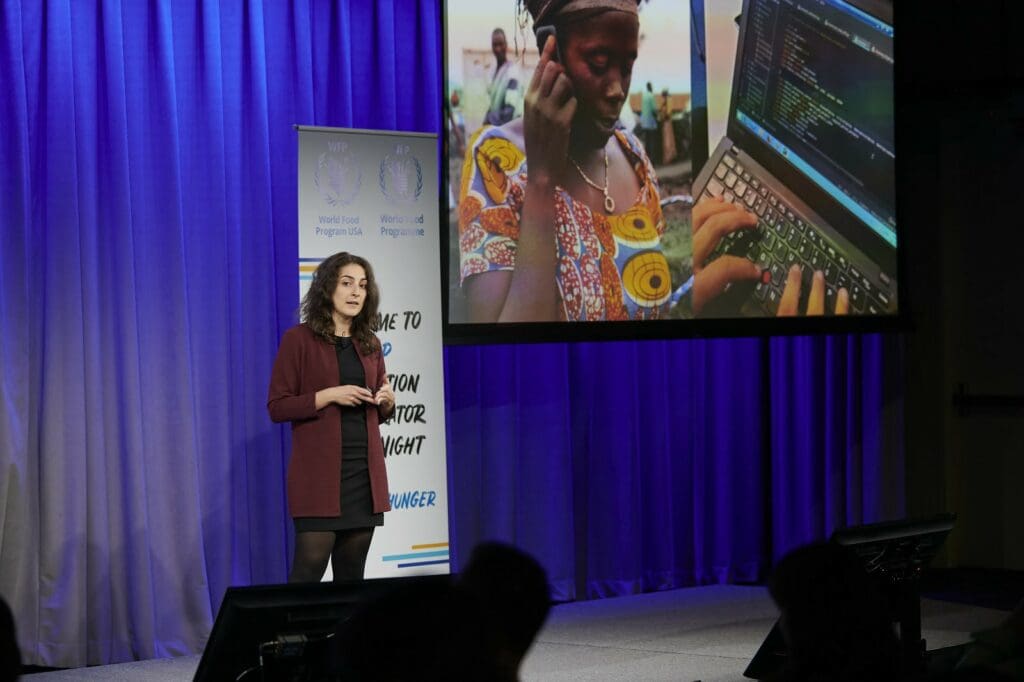
Elisa Omodei, data scientist and predictive analytics lead, pitches WFP’s new AI-powered early stage project, HungerMapLive; an interactive dashboard that tracks and predicts food crises in near real-time.
Eleven outstanding ideas were presented. Among the early stage start-ups, projects ranged from an AI-assisted crisis map to provide humanitarian responders data to predict hunger crises before they happen, to an ATM that dispenses grains to create access to food in rural India, to a cold box food storage device that requires no energy, to an internet-of-things tracking system for delivery to the last mile and every point in between, and a digital ID phone app that allows people to access services without having to rely on ineffective paper systems.
The team pitches were evaluated by a jury of Silicon Valley experts who included: Jaleh Daie, founder of AgFood Tech, Band of Angels; Ennis Olson, global innovation portfolio manager, Food @ Google; Emily High Daniels, WFP USA board member and strategic advisor at Brown Advisory; Joe Stone, executive vice president, enterprise leader — Agricultural Supply Chain at Cargill and WFP USA board member; and Neda Amidi, partner & global head, Health at Plug and Play.
The jury awarded the “Most Impactful Pitch” of the night to the GrainMate team from Ghana. GrainMate is a tool that allows small-scale farmers to measure and monitor moisture in their produce before storage to reduce post-harvest losses. This easy-to-use tool is affordable, accessible, and can be leased on a customized grain loan program.

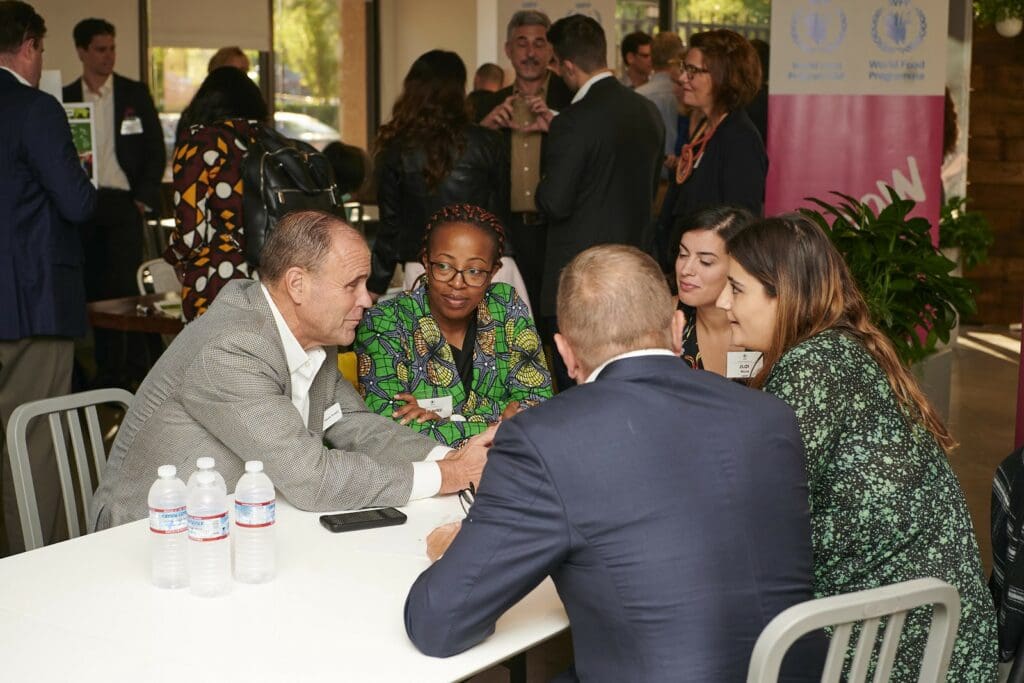
The team from the EMPACT scale-up project meets with potential investors – including WFP USA board chair Randy Russell – to discuss opportunities to grow this far reaching project that empowers youth with digital skills and prepares them for the future of work.
Following the pitches from both the early stage and scale-up teams, all team members were invited to meet with potential investors, with social time to meet with the partners. Google Launchpad, Orange SV and WFP USA all supported this first innovation bootcamp in San Francisco to leverage the innovation expertise of Silicon Valley.
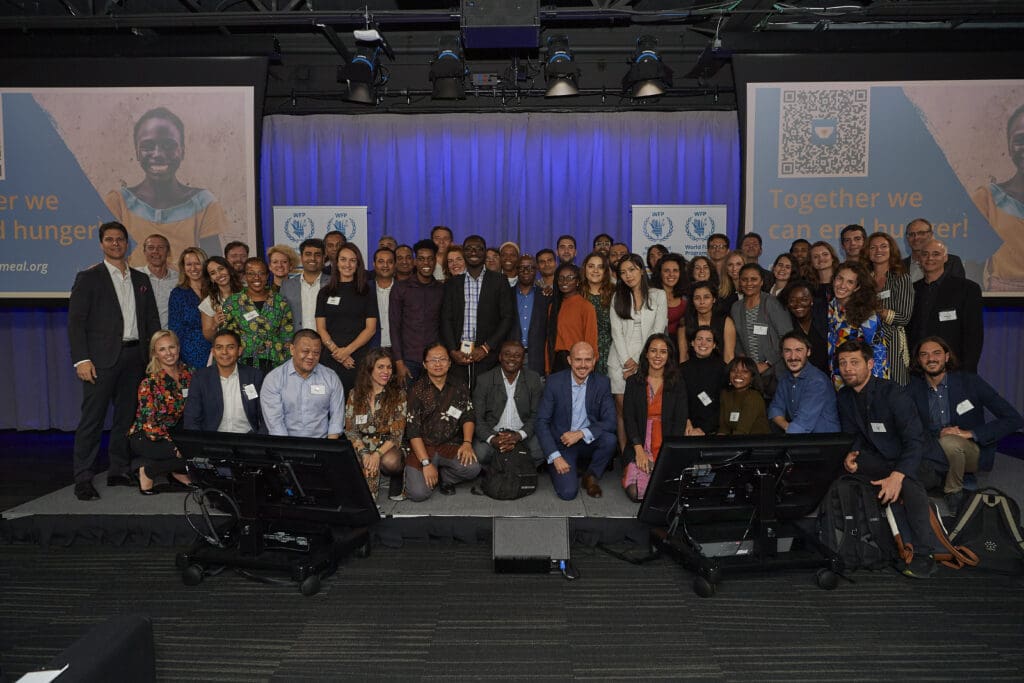
Group photo of the teams and partners of the WFP Innovation Accelerator Bootcamp — Silicon Valley Edition!
While this was the first innovation bootcamp away from Innovation Accelerator’s home base in Munich, Germany, it certainly is not the last. WFP is bringing the Innovation Bootcamp to Dar es Salaam in November 2019, where we partner with the Bill & Melinda Gates Foundation and work with the WFP Innovation Hub and WFP Country Office in Tanzania to accelerate new ideas to increase the impact and uptake of vaccination health services with the help of the East African innovation community.
For updates, follow @WFPinnovation on Twitter, use the hashtag #DisruptHunger, or visit the WFP Innovation Challenge at innovation.wfp.org/apply




